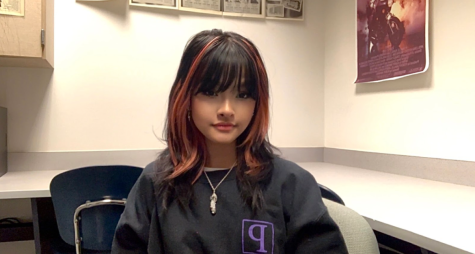Students work to maintain mental health in pandemic year

School districts throughout the country have wrestled with mask mandates.
March 9, 2021
Habiba Swarna, a fully remote student, relies on activities that she does with her friends as an escape from school or anything else that causes her stress.
“(Being remote) made it impossible for me to socialize with my classmates and teachers. I get lonely, and I am alone from time to time,” Swarna said. “But I have got the chance to try new things with my friends.”
The pandemic came with many changes that amplified the toll on mental health considerably in the year since schools closed last March. Students, teachers, and families had to adjust to new forms of living, let alone learning. Changes to daily life have had a considerable impact on mental health.
“As a fully remote student, I would say that school has definitely had at least somewhat of a negative impact on my mental health this year,” sophomore Stephany Ochs said.
The unprecedented challenges that students have been facing over the past year have taken a major toll on many of them. It has been hard for some students to stay motivated to do their schoolwork with the lack of a social life. Social interaction is important to some students to maintain stable mental health.
“I have piles of assignments from my classes, but the freedom for me to relieve my stress by seeing my friends, going out, or generally enjoying social interactions to the fullest is not there anymore,” Ochs said.
Mental health affects the way a person thinks, acts, and behaves. School has emotionally drained students and caused an excessive amount of stress. Doing school work from home can be distracting and often lead to procrastination. `
“I think being all remote has affected many students’ motivation to turn in assignments, projects, and tests,” sophomore Marissa Bordone said.
Reita Melvin, Baldwin High School’s social worker, has been working with students for 17 years. She has been reaching out to many students to ensure that they are taking care of their mental health, since many of them are struggling.
“The changes back and forth between remote learning and hybrid have exacerbated the levels of anxiety in students, coupled with isolation and lack of socialization,” Melvin said.
Melvin emphasized the importance of establishing a structure and sticking with it, because one of the major causes for worsening mental health is the lack of self-motivation. She also encourages students to find things they enjoy and reach out for help if they are struggling.
A significant resource that students have at the high school is the Chill Room, where therapist Christina Cichon has noticed the same issues with students who have been reaching out to her.
“It has been difficult for kids dealing with how to maintain school in a changing environment and battle of trying to stay afloat,” Cichon said.
Self-care is crucial to maintaining mental stability, Cichon said. She recommended that to cope, students should prioritize eating healthy, sleeping well at night, exercising, and reaching out for support if they feel overwhelmed.
A change in routine is also causing students’ mental health to worsen, Deborah Murdoch, a program manager at the Jewish Healthcare Foundation, said. Many things that were a part of regular life before — such as connecting with teachers, other students, or coaches — are now much harder to do. It limits the support systems students can have.
“Having meaningful ways to spend time is something that can help mental health,” Murdoch said.





